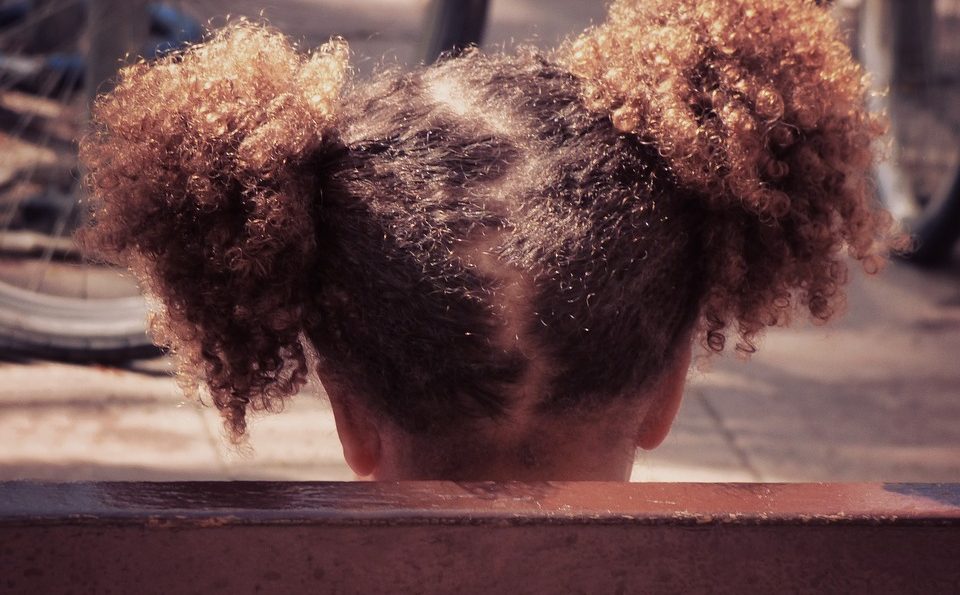“Shut the fuck up when it’s Black girl time” jumped out at me as I scrolled down my Twitter timeline. In that moment I realized that Black girls, like most young women, need a unique and exclusive place for self-expression– a space of our own, if you will. Not only for writing fiction as Virginia Woolf famously writes, but to love ourselves. A space for us to sing our own praises. Actual and hypothetical rooms exclusive to Black women and girls are rare. In the same way that existing as a Black person is revolutionary in a profoundly anti-Black world, creating and maintaining a space in which only Black women exist is a revolutionary act.
Black women, cis and trans, are constantly looking for a place for us. For just us. A place where “well, actually” doesn’t exist and where some white woman is not shaming us for the approval of men. We’ve always been looking for such a space, within the continent of Africa until now. From the beginnings of the National Association of Colored Women during the Jim Crow era, to the emerging Black female artists and writers during the Black Arts Movement and Civil Rights Era of the early 1960s and 70s, to the numerous blogs, channels, and websites for Black women and girls today.
I realized how transitory our womanhood is when I read about Michaela Coel, writer and star of Netflix’s Chewing Gum, was asked by Stylist Magazine “Do you think much about your gender and how that has affected your career?” She replied saying, “I wasn’t aware of my gender until 2013 [ . . . ] I was really busy being Black and poor.”
Similarly to Coel, I did not always recognize the importance or impact of my womanhood. Or rather, I did not have the language for what I was feeling. I knew I felt excluded from womanhood. My only exposure to women who were feminists were white women, and so in those middle school and the majority of my high school years I did not feel part of womanhood. That’s not to say I do not love or value my womanhood, but I did not completely accept it as a part of my identity until I was about 18 years old.
I realized that my personal distance from womanhood was not an uncommon narrative for Black women. Even in a Black nationalist organization like the Afrikan Black Coalition–the largest Black student organization in California–women were facing sexism from within and still doubting its prominence in our communities.
I was astounded when a femme-identified staff member asked if male privilege was a real thing. My surprise stemmed from how deep the #RaceFirst ideology goes. Black women are asked to separate and remove our womanhood from our Blackness in order to fight for Black people first and foremost. Many people are under the impression that race is more influential than gender, but it is disappointing how many men feel more connected to their manhood than Blackness. This is a result of their disregard for Black women’s struggles and fragile masculinity, yet Black women are not allowed entry to our own womanhood.
This conditioning results in Black women shying away from feminism before they can even access the more inclusive womanism. Many Black women– including my formally educated, brilliant mother– feel like feminism just isn’t for them. Some of my mother’s apprehension with identifying with feminism were the persistent prosecution of Black men. Yes, men are socialized to believe that women’s bodies and labor are entitlements; however, Black men are not the only group of men taught this. Movies like the historically lauded Birth of a Nation depict Black men craving white women and preying on what white men consider their property– white women. In an effort to resist rape and commodification, white women pointed their frustration at the universal scapegoat, Black people. White women were not ready to challenge white men and their role in oppressing women, because that would risk their allegiance to whiteness. Feminism proudly demonized Black men, and ignored Black women (and femme presenting non-binary folk). So, I understand why my Mother wanted nothing to do with that segment of feminism.
Black women have been socialized to believe that everyone comes before us. We are taught that our job is to be the glue of the Black community even when it’s against our interests and wellbeing. We often take it so far that our only concern becomes that of protecting everyone else even to the detriment of ourselves.
Black women are told to give our time, energy, emotional labor, intellectual labor, and physical labor to support all women, or be deemed anti-women. Yet there is a double-standard at play that seldom receives enough attention. For example, the image of Rosie the riveter, largely regarded as feminist iconography, depicts working World War II providers as white. The popular image completely erases the role of working Black women during WWII– white women never resist alone.
During the Women’s Suffrage Movement, Black women championed the cause of enfranchising women, yet white women exploited Black women’s generosity and left them in the dust. The point of contention is not glory, but proper credit where credit is due. White women ensured that history ignored Black women and their contributions by conveniently omitting the role of Black sororities from the resistance narrative. Painting Black woman as ambivalent about the need for women’s rights. This is just one way that whiteness has effectively erased Black women’s labor from the record, leaving future generations to believe we owe women’s suffrage to white activism.
People demand that Black women share everything with non-Black women in order to further the cause of women, yet the favor is not reciprocated. A recent example arose at the 2017 Women’s March, a national action organized by women of various races. Even so, the actions centered the experiences of white women, catered to their needs, and then called on women of color to show up in support of “all” women. Black women are treated as if our requests to be included and then listened to is somehow detrimental, rather than beneficial, to the cause of all women. Furthermore, when we create spaces to celebrate ourselves we are labelled divisive. Non-Black women invite and ignore us. We do not care to invite them after history has shown us they do not care about all women, they care about white women. Yet somehow we are categorized as divisive. But without concrete examples, Black women are often described as bitter and inarticulate, so what follows is a recent case of what I espouse.
In honor of women filmmakers at the 2017 Sundance Film Festival, a brunch was held that included Jessica Williams, The Daily Show correspondent, and actress Salma Hayek. The LA Times covered the event, documenting the lunchtime discourse. After Hayek makes a rather exclusionary comment, Williams asks a question.
WILLIAMS: [ . . .] What if you are a person of color, or a transgendered person who — just from how you look — you already are in a conflict?
HAYEK: Who are you when you’re not black and you’re not a woman? Who are you and what have you got to give?
WILLIAMS: A lot. But some days, I’m just black, and I’m just a woman.
HAYEK: No, no, no [ . . . ]Take the time to investigate. That’s the trap! . . . There is so much more.
I have provided an interpretive translation of the last two lines below.
WILLIAMS: Sometimes the world only sees me as a Black woman, and they don’t see past that.
HAYEK: Transcend your race and gender, if you can’t define yourself outside of those things, well, YOU haven’t looked deep enough.
What Hayek ignores is that even if looking deeper inside of yourself was the answer to coping with anti-Blackness, transphobia, and/or transmisogyny, it would still be irrelevant. Even if Williams defined herself in a way that chose not to acknowledge her own Black womanhood, the world would still view her as a Black woman. We do not get to turn off that very visible part of our identity.
Plainly, Hayek is asking Williams to look past her Black womanhood. Unfortunately, there is no summary of our “true” identity tattooed to our foreheads for people to read, and if there was I’m sure people would see a Black woman and decide hers was not worth reading. After enduring a trying conversation, Williams makes a final plea:
WILLIAMS: [ . . . ] I think there is a fear that if we present an idea that, ‘Hey, maybe [black women] have it a little bit harder in this country’ — because we do; Black women and trans women do — if we’re having it a little bit harder, it doesn’t invalidate your experience. I really am begging you to not take it personally.
HAYEK: Baby, I’m Mexican and Arab… My generation, they said, ‘Go back to Mexico. You’ll never be anything other than a maid in this country.’ By the heads of studios! There was no movement. Latino women were not even anywhere near where you guys are. I was the first one. I’m 50 years old. So I understand.
WILLIAMS: You don’t understand.
Hayek misses the point, centers her feelings, and speaks condescendingly by repeatedly calling Williams “baby.” Non-Black women spent most of the brunch interrupting Williams, even going so far to try to speak for her. And even after director and comedian Jill Soloway urged the group to listen to the voice of women of color, queer women, and queer women of color, women still spoke over Williams.
The Hayek-Williams exchange is a case study in why Black women cannot look to non-Black women for confirmation. Black women need a space of our own. To be fully human. To agree and disagree without the scrutiny of men, white women, and non-Black women of color. We need a space to explore our thoughts outside of our unwillful subscription to patriarchy. We need a space to unpack and decolonize in the way we want to, in the time we want to, and with who we want to join us.
About the Author
 Kadijah Means was born and raised in Oakland, California. She is the former Berkeley High School Black Student Union Pharaoh and Amnesty International chapter President. She has been featured in USA Today and other publications in recognition of her 1,000 person Black Lives Matter protest in December 2014. Kadijah is the Communications department Chief of Staff for the Afrikan Black Coalition (ABC). This year ABC successfully pressured the University of California Regents to divest 25 million dollars from private prisons.
Kadijah Means was born and raised in Oakland, California. She is the former Berkeley High School Black Student Union Pharaoh and Amnesty International chapter President. She has been featured in USA Today and other publications in recognition of her 1,000 person Black Lives Matter protest in December 2014. Kadijah is the Communications department Chief of Staff for the Afrikan Black Coalition (ABC). This year ABC successfully pressured the University of California Regents to divest 25 million dollars from private prisons.
Kadijah interned for Congresswoman Barbara Lee in addition to East Bay Community Law Center’s Clean Slate practice in 2015. She was the 2015 recipient of the Princeton Prize in Race Relations, and was recently interviewed on the podcast This American Life. Kadijah currently attends UC Santa Cruz pursuing a degree in both Politics and Critical Race and Ethnic Studies (CRES).

